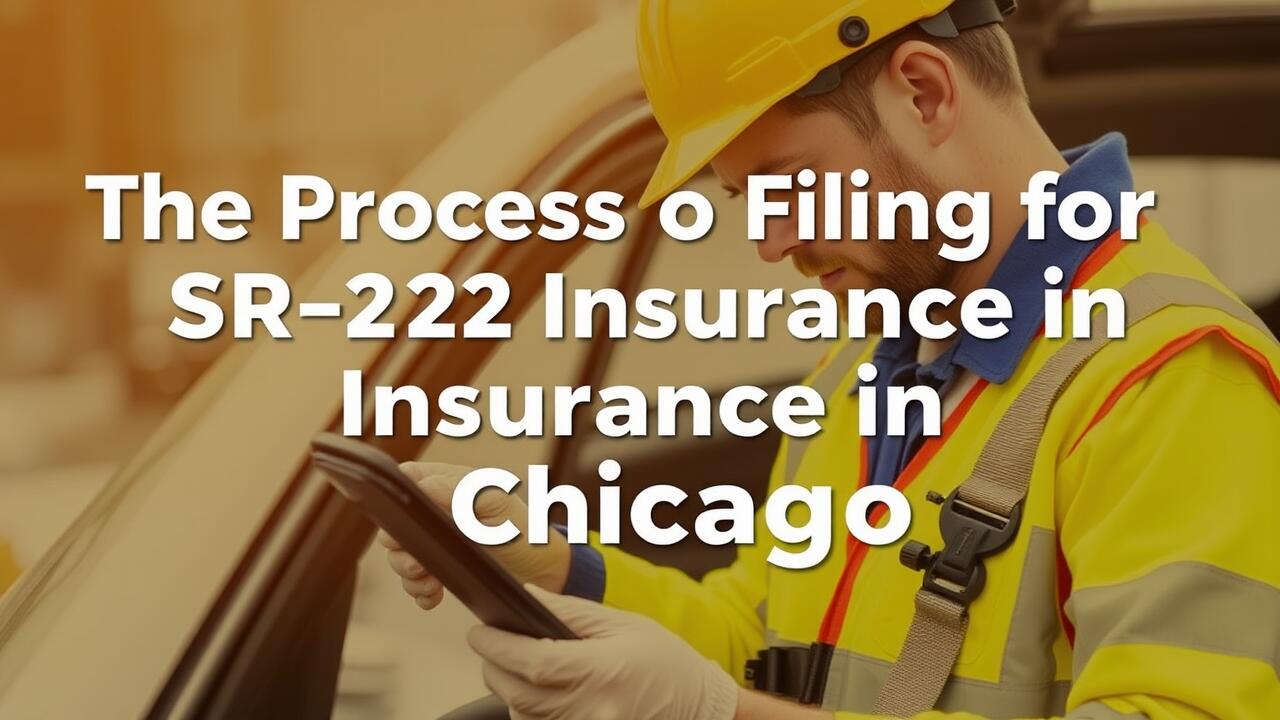The Process of Filing for SR-22 Insurance in Chicago

Table Of Contents
Maintaining SR-22 Insurance
Obtaining SR-22 insurance is only the first step in a journey that requires ongoing responsibility. Policyholders must ensure their coverage remains active throughout the mandated period, which typically lasts three years in Illinois. Missing a payment or allowing the policy to lapse can result in severe penalties, including fines and the possibility of license suspension. Regularly checking the status of the SR-22 filing with both the insurance provider and the state is essential to maintain compliance.
In addition to meeting the mandatory requirements, maintaining SR-22 insurance involves understanding the specifics of the policy. Drivers should review their coverage limits, deductibles, and any additional services offered by the insurer. This period presents an opportunity to reassess existing auto insurance needs and consider adjustments that align with changing situations, such as new vehicles or changes in driving habits. Taking proactive measures can help prevent complications and foster a smoother path during the SR-22 period.
Duration Requirements in Illinois
In Illinois, the duration for maintaining SR-22 insurance typically spans three years. This period begins from the time the state reinstates your driving privileges. Individuals must ensure that their SR-22 coverage remains active throughout this timeframe. Lapses in coverage can lead to serious consequences, including the potential suspension of a driver’s license.
Every driver’s situation may vary based on the underlying reason for needing SR-22 insurance. For instance, violations such as DUI or other serious offenses may result in longer requirements. It is crucial to understand specific conditions that apply to individual circumstances, as these can significantly affect the required duration for maintaining SR-22 coverage in the state.
Implications of Non-Compliance
Failure to maintain SR-22 insurance can lead to serious legal repercussions. If a driver lets their SR-22 coverage lapse, the Illinois Secretary of State is notified, which may result in the suspension of their driving privileges. This notification triggers a series of penalties that can complicate the driver’s efforts to regain their license. Additionally, they may face fines that add financial burdens alongside the potential impact on their insurance premiums.
Beyond immediate legal consequences, non-compliance can also have long-term effects on a driver’s insurance history. A lapse in coverage often leads insurers to consider the individual a higher-risk policyholder. This risk assessment may result in higher premiums for future insurance policies, making it difficult for the driver to find affordable coverage in the future. Maintaining continuous SR-22 insurance is essential in mitigating these adverse outcomes.
Consequences of Failing to Maintain SR-22 Coverage
Not maintaining SR-22 coverage can lead to serious ramifications for drivers in Illinois. The most immediate consequence is the suspension of driving privileges. Once the state is notified that an SR-22 policy has lapsed, the driver faces a potential suspension of their license, which can complicate daily life and add significant stress.
In addition to losing driving privileges, drivers may encounter higher insurance rates upon seeking a new policy. Insurance companies often view a lapse in coverage as a red flag, leading to increased premiums or difficulty obtaining coverage altogether. These financial implications, combined with potential legal repercussions, emphasize the importance of keeping SR-22 insurance active.
Additional Coverage Options
For those looking to enhance their auto insurance policy, several options are available beyond the basic SR-22 coverage. Adding comprehensive and collision coverage provides extra protection against a wide range of incidents. Comprehensive coverage safeguards against non-collision-related damages, such as theft or natural disasters. Collision coverage helps cover damage to your vehicle resulting from accidents, regardless of fault. These additions can provide peace of mind, ensuring financial security in various scenarios.
Drivers may also consider increasing their liability limits, which can offer additional protection in the event of an accident that results in significant damages or injuries. Uninsured/underinsured motorist coverage is another valuable option, especially considering the risks posed by drivers without adequate insurance. By carefully evaluating these alternatives, individuals can tailor their insurance policies to better meet their specific needs while maintaining compliance with state requirements.
Enhancing Your Policy Beyond SR-22
SR-22 insurance primarily serves to prove financial responsibility to the state, but it does not encompass all the necessary coverage for your vehicle. Drivers often consider augmenting their insurance policy by adding additional coverage options. This could include increasing liability limits, incorporating collision and comprehensive coverage, or adding uninsured/underinsured motorist protection. Each of these expansions contributes to a more robust insurance plan that safeguards against various risks on the road.
Exploring these additional coverages allows drivers to tailor their insurance to their specific situations. For instance, collision coverage can cover expenses incurred from accidents, while comprehensive coverage protects against non-collision-related incidents like theft or natural disasters. Additionally, enhancing a policy can provide peace of mind, ensuring that both the driver and the vehicle are sufficiently protected, regardless of the circumstances that may arise.
FAQS
What is SR-22 insurance?
SR-22 insurance is not an insurance policy itself but a certificate that demonstrates a driver’s financial responsibility and compliance with state insurance requirements, typically required after certain violations like DUI or multiple traffic offenses.
How long do I need to maintain SR-22 insurance in Illinois?
In Illinois, you are generally required to maintain SR-22 insurance for a minimum of three years, though this duration may vary based on the specifics of your case.
What happens if I fail to maintain my SR-22 coverage?
Failing to maintain your SR-22 coverage can result in severe penalties, including the suspension of your driver’s license and potential legal repercussions.
Can I drive without SR-22 insurance if my license is suspended?
No, driving without SR-22 insurance when your license is suspended can lead to further legal issues, including additional fines and extended suspension periods.
Are there additional coverage options I should consider when filing for SR-22 insurance?
Yes, it’s advisable to explore additional coverage options such as liability, comprehensive, and collision coverage to enhance your policy beyond the basic SR-22 requirements, providing better protection in case of an accident.